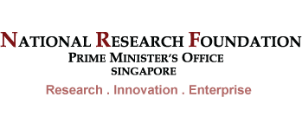Researcher of the Month Seminar Series: ‘Forgotten Past of Sponges from Singapore’, 15 December 2017 @ SJINML, 3pm
SJINML Seminar Room Singapore, SingaporeOur feature scientist this month is Mr. Lim Swee Cheng from the Tropical Marine Science Institute, NUS.
Do refer to the attached poster for more information.
Date: Friday, 15 December 2017
Time: 3pm
Where: Seminar room at the St. John’s Island National Marine Laboratory, St. John’s Island
Please do RSVP to tmscsc@nus.edu.sg by 13 December if you are interested in attending so that ample seats may be allocated on the 5:15pm ferry back to Marina South Pier after the talk.
Thank you and hope to see you on the day!


